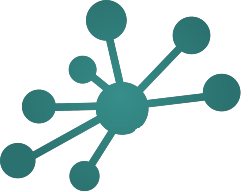info@vennessexmathshub.co.uk (01206) 489933 Update Contact
List of Services
-
List Item 1 Write a description for this list item and include information that will interest site visitors. For example, you may want to describe a team member's experience, what makes a product special, or a unique service that you offer.
Item Link List Item 1 -
List Item 2 Write a description for this list item and include information that will interest site visitors. For example, you may want to describe a team member's experience, what makes a product special, or a unique service that you offer.
Item Link List Item 2 -
List Item 3 Write a description for this list item and include information that will interest site visitors. For example, you may want to describe a team member's experience, what makes a product special, or a unique service that you offer.
Item Link List Item 3 -
List Item 4 Write a description for this list item and include information that will interest site visitors. For example, you may want to describe a team member's experience, what makes a product special, or a unique service that you offer.
Item Link List Item 4
YEARS 5 TO 8 CONTINUITY
Why is this project needed? What does it involve? What are the benefits?
Who are the intended participants in this project? What is their expected commitment? What resources will they explore?
Transition from KS2 to KS3 remains a hiatus point for many students. To support a coherent experience for students in Years 5 to 8, it is important to place the transition in a wider context so that students are well-prepared for KS3, and so their KS3 work builds on from KS2. To enable this, it is important that teachers understand what has gone before the maths they are teaching, and where it goes next.
The project provides the opportunity for participants to develop their practice through a deeper understanding of the broader maths curriculum, and through exploring pedagogical approaches which result in improved student engagement and progress. It aims to ensure that pedagogy and practice allow students to make good progress and develop a deep and sustained understanding of maths, in line with the NCETM's Essence of Teaching for Mastery.
Work Groups focus on curriculum and pedagogical knowledge across the KS2-3 transition from Years 5 to 8. Through genuine, cross-phase collaboration, participants gain a deeper understanding of how the maths in the primary curriculum develops in KS3, and how key concepts are developed and represented at KS2.
The combination of both curriculum and pedagogical understanding allows schools to work together to ensure continuity in experience for students as they move from KS2 to KS3. The longer-term aim of these Work Groups is that there is a change in practice in participating schools, leading to a sustained improvement in transition in maths.
Participants will collaborate with colleagues from across KS2 and KS3 by working on mathematical tasks together, and planning for and reflecting on the resulting learning. Work Group activity may include:
- whole-group collaboration on various aspects of curriculum and pedagogy
- exploring resources to support a more coherent KS2-KS3 transition and planning for their use
- class-based sessions to see the resources in use with students
- school-based tasks for participants to try new approaches with their own students and then reflect on the impact on students
- sharing reflections and feeding back to the group.
The intended participants are those who teach and/or have responsibility for the maths curriculum in Years 5 to 8. Participants may be subject leaders, phase leaders or teachers with responsibility for transition in a school. Work Groups are particularly effective when secondary schools and their feeder primary schools work together.
Participants are expected to attend the equivalent of three full days of workshops, and to complete school-based tasks between sessions. Work Group Leads aim to hold sessions in both KS2 and KS3 settings, affording opportunities to see the tasks in different classroom contexts.
A range of materials have been developed which exemplify the principles of teaching for mastery, and focus on key elements common to both KS2 and KS3 maths teaching and learning. Some of these materials may be explored in Work Group sessions, and teachers will then try them out with students, observing the impact of different pedagogical approaches in their own class, reflecting on these activities, and preparing brief notes to support discussions in the following workshop. Participants may also be asked to contribute to online forum discussions. Schools need to be willing to explore and trial a potentially different pedagogy in maths, and to develop their transition practice. It is expected that activity associated with this project is sustained over at least one school year.
What are my next steps?
If you would like to take part in this project, please fill out the application below.
Or would you like to explore more?





